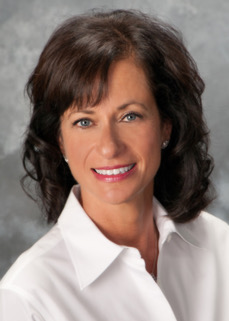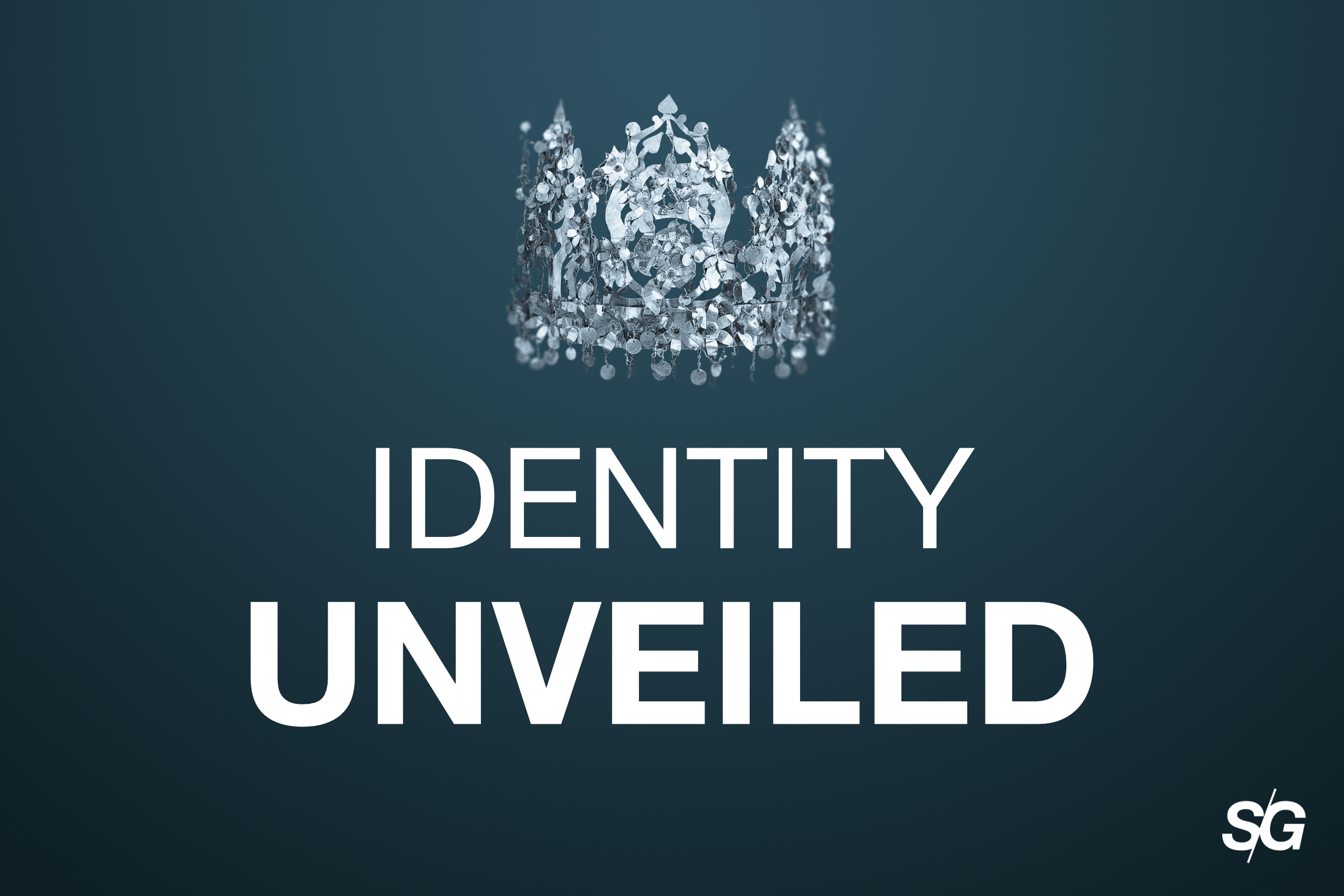Also Available On






This is Shirene Gentry with the Identity Unveiled podcast.
Today’s podcast is a long time coming in that I’ve been contemplating how to approach this topic without sounding preachy.
It is paramount that I discuss your belief system. Each person wakes up every day with conscious and unconscious beliefs. That is, we live out our day by “doing life” with certain presuppositions, assumptions, beliefs, and perceptions. Rarely do we ever challenge our beliefs. We go about our day, our life from beliefs that have been previously shaped and formed.
We wade through the currents of life until we hit an obstacle or hardship in our journey. Or a crisis. Or a trauma of some kind.
I believe that when crisis – whatever that means to you – will uproot our formerly held beliefs, questioned or not questioned, unlike anything else.
Why does it even matter? When we reach a critical point in our lives, regardless of what it looks like or how we got there, how we think about God, ourselves, others, and our experiences will be challenged.
If there is incongruence in our mind and our heart – what we thought was supposed to happen – our beliefs will rise to the surface. This can actually be a blessing if the crisis or hardship in our lives can cause us to reevaluate and reassess our formerly held beliefs.
When I was going through my spiritual milestone year in 2002, God had a lot of internal work to take care of. He had to uproot the misbeliefs I had held for a lifetime. Where I had taken a misstep – during my developmental years – needed to be uprooted and planted with truth. It was a total overhaul of my formerly held beliefs, which I had never questioned or challenged.
What is the “blessing” or silver lining in hardship? If it can correct our belief system once and for all, then the time spent is not wasted.
The crux of our beliefs boil down to what we think about God, others, and ourselves.
Do I believe who you think God is and who you are are actually intertwined? Absolutely. I will share some concepts from the disciplines of Scripture and psychology that will speak to this very issue.
With this podcast, I would like to address the following categories:
- [Which] Approach – Different views on our spiritual and psychological lives.
- [Where]…. Awry in Attachment – What happens in early years or crisis?
- [What]…Application – What are action steps for spiritual and psychological wellbeing?
I would like to first address only a couple of different approaches toward our spiritual and psychological components.
APPROACHES
Many believe that these disciplines are separate and compartmentalized. I do not, and I will explain why – from personal example and what the field of counseling tells us.
Let me first address just a couple of the different approaches and opinions between the fields of theology and counseling:
There is the “Nothing Buttery” approach: People in this particular camp disregard psychology all together. They believe that all problems are a result of sinful living. I will not call out names here, but those who are in the ministerial and counseling areas of work know which leaders adhere to this approach.
This particular model emphasizes exhortation and correction for change.
In my opinion, this approach is too simplistic because it does not take into account a person’s unique upbringing or internal processing of their life experiences.
Another approach is the “Separate but Equal” idea that spiritual and psychological problems are completely separate. If someone has a spiritual concern, they go to a pastor; if they have a psychological concern, they go to a counselor.
This is not inherently a negative thing, but what if…what if…our internal spiritual condition and our psychological distress could be addressed at the same time? I think it can.
So how does our thinking go off-track? Awry?
As a side note, if you are currently living through a major life stressor at the current time, remember that your experience is interpreted by the (previously held way of) thinking you bring to that current event.
As an example, let’s take grief – loss of a loved one or, at this specific time, a loss of income or job. I will address this topic more fully in another podcast. Your grief is shaped by the thinking you bring in to it. Whether it’s accurate or not will determine your ability to move forward from this particular stressor.
For the purpose of this podcast, I would like to share how our beliefs begin early.
If you are currently struggling with who God is, I think we need to take a step back and a look back into early development to see how and why things went awry.
AWRY in ATTACHMENT
Sometimes things occur in our lives at an early age that we absolutely have no control over. Think about your own life. What are some examples of what you were exposed to? Alcohol? Abuse? A major life stressor at a young age?
What are some key points to consider when, as adults, there seems to be internal chaos when it comes to our beliefs about God, ourselves, others, our experiences, our past, our present, and future lives? How do we make sense of it, and what happens along the way for this disconnect to take place?
Here is where I share my ideas about our spiritual and psychological lives intertwining and how it happens.
What is attachment? I write about this topic briefly in my book Identity Unveiled. Specifically, in my infancy, a letter left behind by an American general who worked with the shah advised my mother to not show the photograph he sent of himself with the shah to me as it “would create a trauma”. He was referring to this counseling of attachment, as I would recognize the shah, whether or not my experience of being in his presence for the first seven months of my life was positive or negative. I actually have no evidence for one way or the other.
My research does reveal that in Persian culture, the biological children belong to the birth father, not the birth mother as in American culture.
This letter left behind, in my opinion, is a strong indicator as to my placement after birth. Also, if I hadn’t been in the presence of the shah, then a photograph of him would elicit no emotion from me.
Attachment begins early as an infant and through our formative years with how our primary caregiver responds to our needs. Attachment – how we bond emotionally – can either be a negative or a positive experience.
As we grow, especially in our childhood years, we develop a set of core beliefs about ourselves, others, and even God.
The questions we ask ourselves about ourself and others are the following:
- Am I “seen” by you?
- Am I safe with you?
- Am I secure with you?
Overlapping and reframing questions are how we judge if others are ultimately trustworthy, if they are available and accessible, if others consider us worthy, are others reliable?
If our primary caregivers fulfill these core needs of being loved and safe, we will learn that we can seek closeness with them in a trusting, loving relationship.
Furthermore, in this primary relationship, we learn how to deal with our emotions, our frustrations, our social problems in all the while learning how to live within boundaries for our protection. We learn to explore our world within loving limits knowing those boundaries are there for our ultimate protection and safety.
As children, we also ask ourselves if we are lovable and getting the love we want and need.
- Am I lovable?
- Am I accepted?
- Am I getting the love I need?
- Am I trustworthy?
- Am I accessible?
- Am I safe?
Of course, I’m speaking about the ideal here. This is called a secure attachment. There are three other types if our primary attachments have not been safe and secure.
——
I would like to say I grew up with emotional security. I did not. As a result, I learned early that my experiences and environment did not provide a safe haven for my emotions. In fact, because of my environment, I didn’t know what to do with my feelings. So I ignored them.
Although I discuss this concept in my book, suffice it to say that I can recall as early as 4 years old being in places with people with my mother while my father was serving in Viet Nam. I’m quite sure she thought I was too young for memories, but that is clearly not the case.
My perception from an early age was that I was not in a safe environment based on the behaviors I remember. In turn, this was continued and perpetuated throughout my childhood until I went to live with my grandmother at the age of 8.
Even then, I was still exposed to the ways my parents “did life”, and I began two ways of dealing with what I saw and experienced: first, I began to repress my emotions; second, I questioned why God allowed these things. Specifically, I can recall asking my grandmother why God gave me the parents he did. She never was able to answer this, so her inability to help me process this crucial question, my belief that God was distant and uninvolved became an ineffective way of dealing with my unsettled emotions.
The interesting point is that we not only ask these questions of our security to the primary caregivers in our lives, but we also ask God these same questions.
- Are you safe?
- Are you reliable?
- Are you trustworthy?
Depending on how we answer these crucial questions of others, of ourselves, and of God, we develop a set of beliefs that become the framework for how we “do” relationships.
What happens along life’s way that gets us into trouble with our relationship rules about others and God?
Here are key points to keep in mind:
- At a young age, our emotions and our cognitions are formed together.
[Think on this! Your experience leads to feelings then shapes your beliefs]
2. While we are young, we do not have the cognitive capacity to challenge our forming beliefs, whether they are true or not. We accept them “as is”.
3. Whether we realize it or not, we begin to “carry” these misbeliefs into adulthood.
4. Consequently, as young children, we aim to self-protect.
I began to self-protect my feelings and beliefs by minimizing what these experiences did to me emotionally, and this continued until I got married and thereafter. Because faith had been an integral part of my upbringing while living with my grandmother, I learned how to veneer my negative feelings with spiritual platitudes, thereby minimizing the effects that disappointments and early memories had created deep within the recesses of my heart and mind.
It is natural, therefore, that I didn’t know who I really was and who could be trusted, God included. No sense of healthy security provided the framework for emotional and spiritual wellness.
Thus, the intertwining of our emotional and spiritual lives can start early.
What if you do not grow up with that security that you need? What happens in adulthood?
This leads me to the most important section of this podcast: Application. What are the necessary steps we must take to reach a place of truth, wholeness, and peace, regardless of our upbringing?
There are times that I catch myself in my old thinking patterns of asking why God allowed me to be brought up in this particular family of adoption.
He reminds me of personal transformation that has gotten me to this peaceful place of acceptance. Yes, acceptance.
APPLICATION
Please take note of these crucial action steps and changing your misbeliefs if you need to arrive at knowing who you really are in the midst of what you have lived through:
Step 1:
Know that pain blocks your ability to feel God close. Just because you may not “feel” him close doesn’t mean he isn’t.
What would taking steps toward God actually look like for you?
Whether you will admit it or not, your vertical relationship with God affects your horizontal relationships. You can’t love to your fullest capacity without first taking steps toward God and finding out who he really is in your life narrative.
The overflow of knowing who God is to you will result in a natural overflowing to your other close, intimate relationships. Thus, this will creating a secure, truthful attachment to God will promote a more secure attachment with the others in your life.
Step 2:
Watch your self-talk about God, self-talk about yourself, and self-talk about others.
To say, “God doesn’t care” is a paralyzing misbelief that will completely prevent your healing.
Find Scripture that speaks to the contrary about who God is and who you are – your value, your worth – that speaks truth to your identity? If you do not know where to start, please begin by reading the entirety of Psalm 139. Let the words soak in over and over until you finally believe them.
What can you find that in FACT and truth tell you that God does care? That he is with you every step of the way?
Step 3:
Begin to look at your life from an existential framework.
- Ask yourself, “How can God use this experience?” rather than asking “Why has this happened?” Asking why will not only NOT change your circumstances, God may or may not answer this. You’re asking the wrong question, and doing so will certainly keep you stuck.
- Ask yourself, “Is this experience to be used for a greater good?”
Step 4:
Think BACK …
…to your backstory. Be honest with God. What did you legitimately need that wasn’t provided? How does it make you feel that these core needs were perhaps not met, for whatever reason?
Step 5:
Think DIFFERENTLY…
We know that you can transform and change your thinking. When you do so, you create new neural pathways in your brain! This concept is known as neuroplasticity.
The wonderful promise is provided in Romans 12:1,2 when we are commanded to transform and renew our minds. When we actually do the hard work of changing how we look at things or people and change our faulty perceptions, the promise is that we will know what God’s perfect and pleasing will is for our lives.
When you learn to think differently, what would it be like to…
… see your primary givers in a healthy balance, with fond memories along with those that are unpleasant? This would involve intertwining the good and healthy memories with those that were bad and unhealthy.
…what occurred in their formative years that perhaps they never healed from?
Although this doesn’t change your situation, it changes your perspective on your situation because it begins to give you broader understanding and insight, thereby resulting in peace that replaces the chaos.
Step 6:
Take responsibility instead of turning to blame. You can shift whatever patterns you have “inherited” and become a person who pivots the generational behavior you have been exposed to.
Step 7:
What you do to heal the past will hinge on your ability to connect well and intimately with the important people in your present.
Step 8:
Learn to separate your experience from who you are.
[Ex. grief, cancer, trauma… just to name a few]
——-
These are the action steps in moving closer to God and to others. Take steps to get to know who God really is. When you do, you discover who you really are – a daughter of the King of Kings who longs for your redemption and restoration so you can rest in your identity. He wants this to be settled for you once and for all. Do you?
[End by reading page 101 of book]
Lorem ipsum dolor sit amet, consectetur adipiscing elit. Sed nec pellentesque purus. Nunc finibus urna eget est molestie, non dignissim nulla cursus. Proin hendrerit, lacus vitae imperdiet rhoncus, tortor quam sodales lorem, vitae hendrerit est nulla at dolor. Quisque dictum dui eget turpis dapibus pharetra. Morbi feugiat dolor eu sapien suscipit, ut molestie lorem varius. Pellentesque id justo eu risus dapibus maximus. Pellentesque id egestas ipsum. Vivamus nec neque ac tellus ultricies dapibus vitae in sapien.
Lorem ipsum dolor sit amet, consectetur adipiscing elit. Sed sed sapien erat. Vivamus lacus arcu, luctus eget pulvinar eget, dignissim et justo. Vivamus rhoncus nunc ut dolor malesuada ornare. Cras faucibus augue venenatis viverra commodo. Orci varius natoque penatibus et magnis dis parturient montes, nascetur ridiculus mus. Quisque malesuada consequat dolor non auctor.
About The Author

Shirene Gentry
Shirene is a Board Certified Master Christian Life Coach through the American Association of Christian Counselors and has professional memberships with the AACC and the International Christian Coaching Association.
